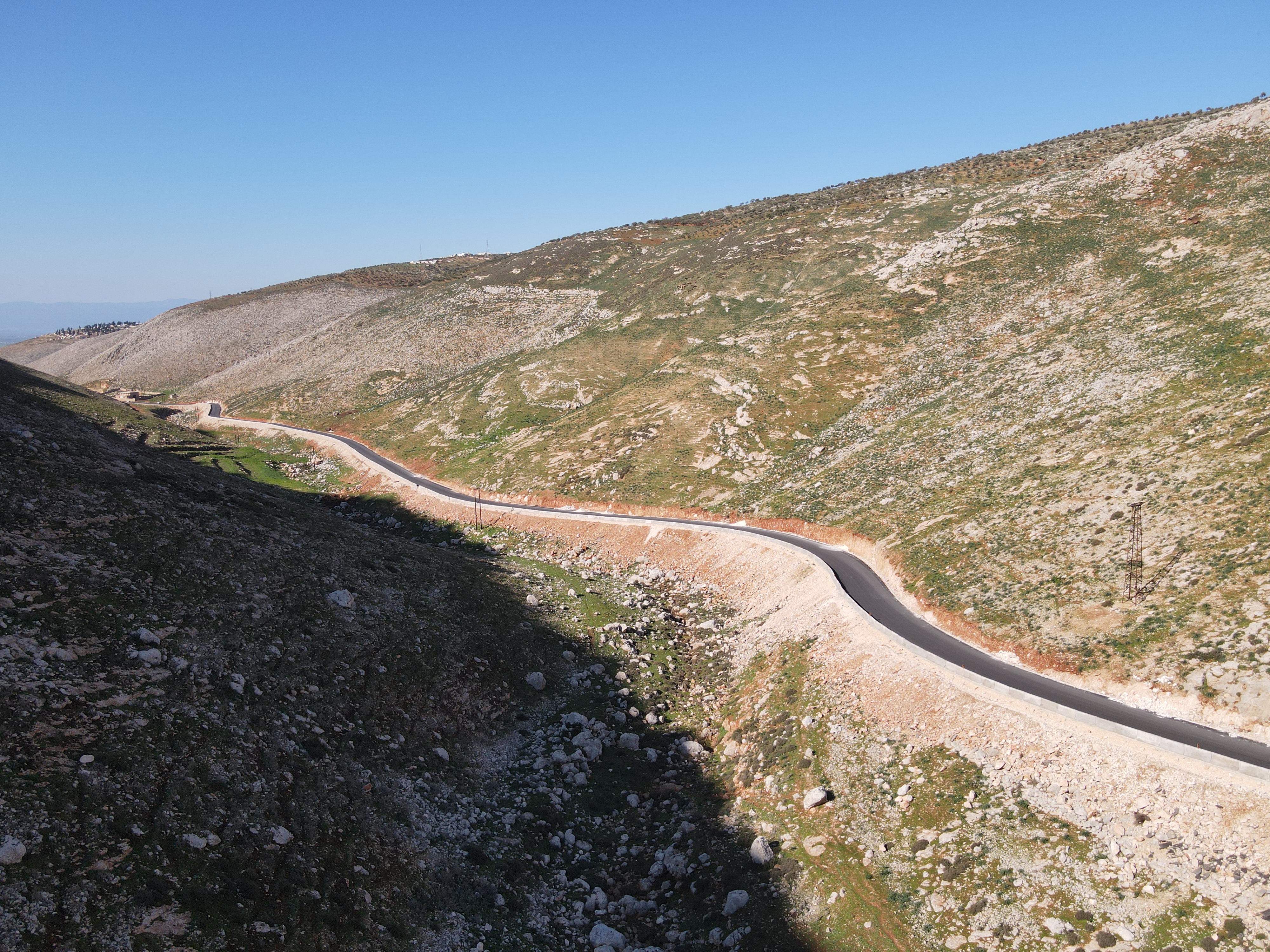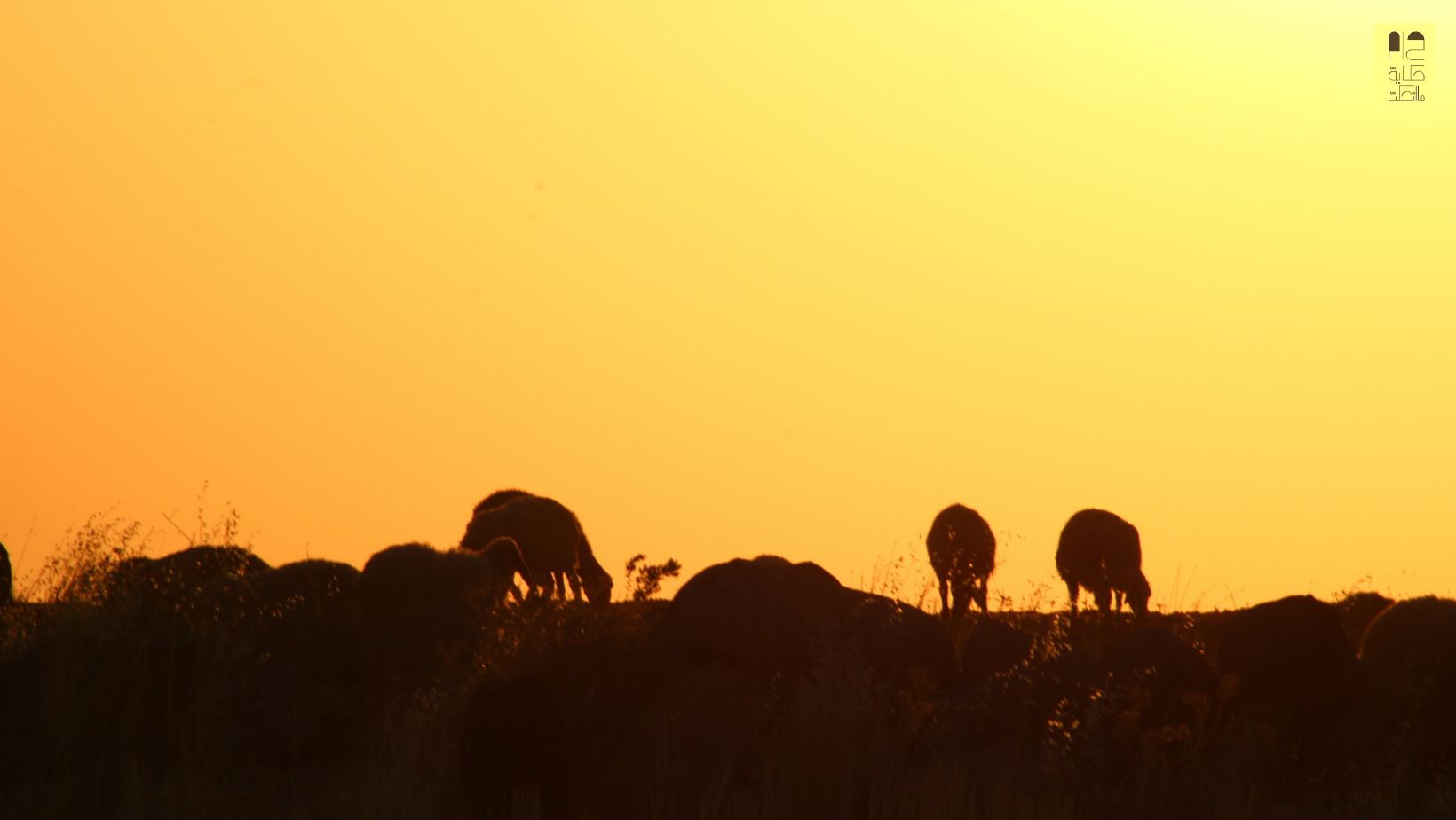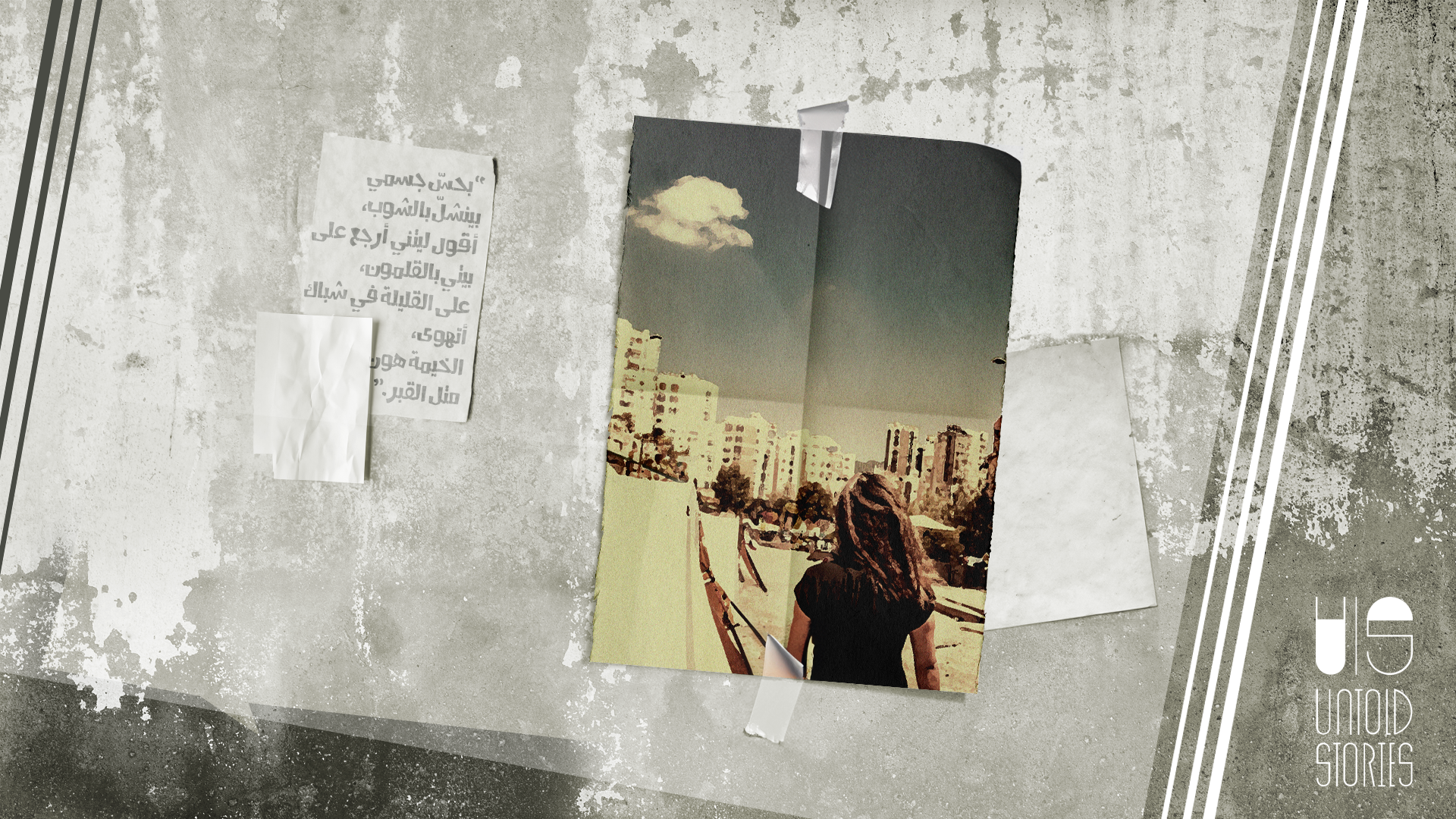Najwa's family (48 years old) once owned a small five-dunums plot of land planted with summer crops. However, due to declining financial returns and accumulating debts, they were compelled to sell it five years ago. "We became entirely dependent on wage labor in agricultural fields," Najwa explains.
She and her husband work on agricultural land owned by a fellow villager in Sahel Al-Rouj, in the countryside of Idlib. They manage the cultivation and harvesting processes, and cover the costs of medicines and fertilizers, while the landowner handles the irrigation from his well. Najwa's family shares 50% of the crop yield with the landowner. "Most people here own land, but only a few of the impoverished resort to this type of partnership," she notes.
Due to climate change and delayed rainfall, the land requires more fertilizers and medicines to fend off potential diseases, yet the rising costs of these materials have become prohibitive. "If the expenses are too high, we won't see any financial return or benefit from the land," Najwa states.
"We planted four dunums with zucchini and cucumbers, but worms infested the plants, preventing us from harvesting more than once, and ultimately, the plants perished," she recounts regretfully, emphasizing that they derived no benefit from their land. "Our livelihood now depends solely on earning wages by working on other people’s land."
Climate Change Reduces Crop Yields
"Early severe heat waves impact the blossoms of almonds and olives, and the delayed onset of winter frost, occurring in spring, adversely affects summer vegetables," explains Anas al-Rahmoun, a climate and environment researcher. He notes: "The forecasts for the coming years are uncertain as climate changes continue to fluctuate."
Syria’s forests are vanishing
29 April 2024
According to the Baath newspaper, the Assad regime's Ministry of Local Administration and Environment reports that Syria is enduring its worst drought in 70 years due to the retention of rainwater in most areas. This has resulted in significant damage to crops and farmers, compounded by high heat waves in some regions. Engineer Ruwaida Al-Nahar, Director of Environmental Safety at the Ministry, states that the lack of water due to climate changes is expected to lead to a decline in agricultural productivity.
The total area of arable land in Idlib governorate is approximately 177 hectares, divided between 65 hectares of non-cultivated stripped lands suitable for agriculture and 112 hectares of lands covered with trees, as per the Ministry of Agriculture of the Salvation Government (ten dunums equal one hectare). About 30% of the workforce in northwest Syria, under the control of the Salvation Government in Idlib, works in the agriculture sector.
Agricultural solutions also affected by the climate
Farmers have turned to cultivating aromatic plants that yield better income than vegetables, such as cumin and black seed (Nigella sativa). In 2023, the selling price of cumin ranged between three and four thousand US dollars per ton, with production varying from 70 to 150 kilograms per dunum.
Wahid Nabhan, 69, who has cultivated wheat, peas, and summer vegetables for 30 years, previously cultivated and gained substantial benefits from black seed. "Fortunately, I did not plant it this year as all its crops in the area were damaged," he says. However, his cumin crop also suffered damage.
Nabhan's land spans about 35 dunums on the outskirts of Zardana village in the northern countryside of Idlib, with 11 dunums dedicated to cumin. He reported he lost the entire season. "I planted 40 kilos of cumin seeds, sprayed insecticides seven times, and plowed the land. My losses are substantial; it would be good if I could at least replace the seeds I planted.
This damage is mainly attributed to the spread of Alternaria or Cumin Blight, which occurs due to the delayed rainy season, which extends into spring. With temperatures around 30 degrees, this leads to the emergence of fungal and insect diseases, as noted by engineer Anas al-Rahmoun. "Cumin blight" is categorized as a fungal disease that affects plants during their flowering stage, displaying brown spots on the leaves and stems until the stems droop, dry, and die.
Cumin Harvest Exasperates Farmers
Cumin cultivation in Syria started over 50 years ago, but is confined to specific plain and dry regions because it cannot thrive in heavy, moist soils. "The climate in northwest Syria is humid with high rainfall, limiting successful cumin cultivation to certain dry areas," agricultural expert Samer Yousuf explains.
According to Yusuf, cumin doesn't need watering, just spring rainwater. "This year’s cumin cultivation success rate is low due to the unusually high rainfall in April." He adds that cumin is sensitive to high humidity levels and lacks a significant root mass to absorb moisture effectively.
To mitigate damage, farmers prepared the land according to their means. For instance, farmer Wahid Nabhan applied trifluralin, a herbicide costing about $2.5 per dunum, with total expenses reaching ten dollars per dunum including labor cost.
Nabhan also plowed the land three times and prepped the seeding machine before dispersing the seeds, using three kilograms of seeds per dunum. "After planting, I used fertilizer costing $37 per bag. Every six dunums required one bag, so I needed two," Nabhan recounted. According to Samer Yusuf, cumin primarily needs phosphorus fertilizers.
After planting, Nabhan tried to combat fungal diseases. "I sprayed the plants six times with pesticides and added two bags of sulfate fertilizer, each costing $15." He reported that each spraying operation cost about 50 dollars for his planted area, and he will barely cover the cost of the seeds.
Omar Yusuf from Zardana village experienced significant damage to his cumin and black seed crops. "The crop was initially good, then paralysis and root rot diseases spread. I tried to combat them multiple times with no improvement. Once such diseases spread, it becomes impossible to control them."
Initially, Omar did not use disease control, but after seeing other farmers' efforts, he tried to combat it without any success. "I spent money without any benefit, leaving me no choice but to harvest and replace them with another crop. Now, the land is only suited for planting summer crops like melons, cucumbers, zucchini, and corn."
Agricultural expert Samer Yusuf estimates that about 75% of cumin and black seed crops suffered due to weather conditions and diseases. An earlier report by the International Rescue Committee published in April 2023 indicated that Syria is one of ten countries at risk of climate disasters due to its diminished crisis response capabilities. Its CEO noted that the world's most vulnerable populations are on the frontline of the climate crisis.
"Cumin should not be replanted in the same soil for three to five years," Yusuf advises, adding that if diseases have spread in the planting area, it should not be replanted until after a long cycle of six to eight years.
Experts explain that farmers adhere to this cycle to preserve their land. Farmers today thus divide their lands to plant each section with a specific crop. “Some farmers were unaware if the land had been previously planted with cumin, so they replanted cumin on the same land, rendering the land unusable." He added that, due to the poor economic situation, farmers are choosing to grow crops that yield higher incomes.
Najwa and her family have had to forgo many essentials because they could not afford them. "We eat meat only during the holidays and Ramadan, and we have given up many things," she shares. Last Eid, she bought her children the cheapest possible Eid clothes and didn't buy anything for herself. She has purchased used European clothes for the past three Eids because "the financial situation is worsening, and we are becoming poorer due to climate change and the decreasing agricultural yields."











